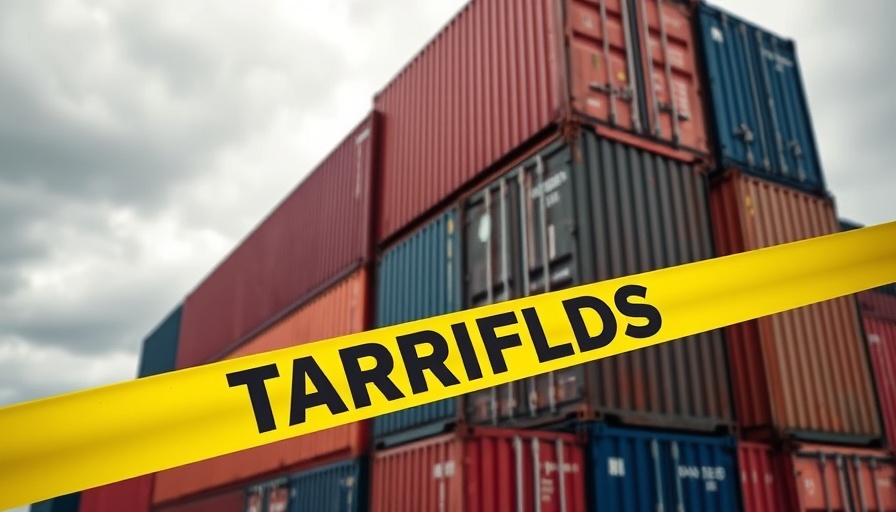
The Impact of Tariffs on Financial Markets
The recent trade war initiated by the Trump administration represents a major shift in U.S. trade policy. The introduction of tariffs has created economic uncertainty, affecting consumer goods and financial markets across the globe. Investors must now navigate a landscape where traditional strategies may no longer apply, as tariffs increase costs and disrupt supply chains. For instance, consumers can expect rising prices on many goods as companies pass down these tariffs, complicating their purchasing decisions and investment strategies.
Two Avoidances to Keep in Mind
When facing the repercussions of the trade war, there are key pitfalls investors should work to avoid:
- Don't Rely on Federal Reserve Interventions: The belief that the Federal Reserve will step in to lower interest rates is misplaced. Current inflation forecasts suggest that the Fed's ability to drop rates may be limited due to persistently high prices, especially in durable goods. This rigidity could lead to economic stagnation, creating uncertainty in the market as the costs of goods rise. Smart investors should focus on shorter-term bonds and Treasury inflation-protected securities (TIPS) to manage risk effectively amidst this volatile climate.
- Don't Assume Past Winners Will Stay at the Top: Many investors are still under the impression that previous high-performing sectors, particularly in technology, will continue their upward trajectory. The dynamic introduced by tariffs alters this perception; companies may struggle under increased production costs and lower international sales. Conducting thorough research is essential to ensure a balanced portfolio that includes international investments, specifically in developed markets with stable governmental structures.
Four Essential Actions to Implement
Amidst the challenges presented by the trade war, four advantageous strategies can be harnessed by informed investors:
- Do Diversify Investments: With uncertainty dominating the financial landscape, a diverse portfolio is crucial. Investors should consider stocks from countries less affected by the trade disruptions, particularly those with stable economies that would benefit in lieu of U.S. tariffs. This may include sectors such as healthcare and consumer staples which tend to be more resilient during economic downturns.
- Do Stay Informed on Policy Changes: Trade policies are constantly evolving, and staying abreast of government decisions is imperative. Investors should keep informed about potential new tariffs and changes in trade agreements, as these will have substantial effects on market performance and consumer habits.
- Do Prioritize Research: Comprehensive research into potential investment areas is essential. Understanding geopolitical relationships, the impact of tariffs on specific industries, and economic indicators will empower investors to make more informed decisions. Resources include financial news, investment analysis platforms, and public economic reports that shed light on market developments.
- Do Reassess Risk Tolerance: With the likelihood of increased volatility, it's important to reassess your personal financial situation and risk tolerance. This assessment should guide portfolio allocations, particularly if you are nearing retirement or other financial goals. Adjusting your strategies accordingly can help mitigate potential risks posed by unforeseen market movements.
Conclusion: Preparing for Continued Uncertainty
The tumultuous effects of the trade war signify that investors must adapt to new realities. By avoiding common traps and employing strategic actions, individuals can better navigate the complexities of today’s financial environment. While challenges remain, informed decisions based on careful evaluation can promote resilience in your investment approach. Healthier financial practices can lead to better outcomes, emphasizing the importance of adaptability in an unpredictable market.
 Add Row
Add Row  Add
Add 




 Add Row
Add Row  Add
Add 








Write A Comment